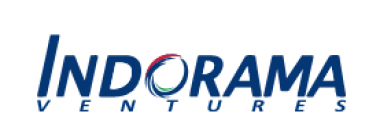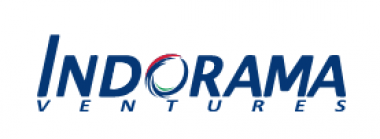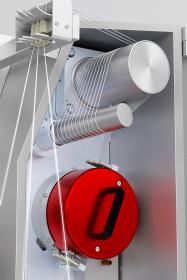Coperion: Neuentwicklung für das Recycling von Kunststoff-Fasern und -Flakes
Mit dem Ziel, das Recycling von leichten, sehr voluminösen Rezyklat-Fasern und -Flakes deutlich wirtschaftlicher und in manchen Fällen überhaupt erst möglich zu machen, hat Coperion eine neue Ausführung seiner Seitendosierung ZS-B entwickelt. Mit dieser innovativen ZS-B MEGAfeed kann Kunststoff-Rezyklat mit einer Schüttdichte unter 200 kg/m³, das bislang als einzugsbegrenzt und daher als nicht wirtschaftlich recyclebar galt, in großen Mengen zuverlässig in den ZSK Doppelschneckenextruder von Coperion eingebracht und dort mit hohen Durchsätzen rezykliert und gleichzeitig compoundiert werden.
Verantwortlich dafür ist die neuartige Konstruktion der Seitendosierung ZS-B. Sie ermöglicht sehr hohe Dosierraten von Fasern und Flakes aus unterschiedlichsten Kunststoffen (z.B. PA, PE, PET, PP). Die hohe Leistungsfähigkeit des ZSK Doppelschneckenextruders kann mit der ZS-B MEGAfeed voll ausgeschöpft werden. Es werden sehr hohe Durchsätze sowohl beim mechanischen als auch chemischen Recycling von Post-Industrial- und Post-Consumer Waste erzielt.
Durchsatzsteigerung in Zahlen
Mit einem ZSK 58 Mc18 Doppelschneckenextruder wird die Durchsatzsteigerung und damit das Potential der neuen ZS-B MEGAfeed sehr deutlich. Beim Recycling von PA-Fasern mit einer Schüttdichte von ~40-50 kg/m3 wurden bislang mit herkömmlichem Equipment Durchsätze von 70 kg/h erzielt. Wurden die PA-Fasern über die ZS-B MEGAfeed in den ZSK Extruder eingebracht, stiegen die Durchsätze um das 14fache auf 1.000 kg/h an. Ähnlich verhält es beim Recycling von Carbon-Fasern mit einer Schüttdichte von ~50-70 kg/m3. Dort stiegen die Durchsätze mit der ZS-B MEGAfeed von 50 kg/h auf 2.500 kg/h. Beim Recycling von PCR (Post Consumer Recycled)-Flakes wurden Durchsatzsteigerungen von 50 kg/h auf 700 kg/h erzielt, beim Recycling von Flakes aus Mehrschichtfolien von 80 kg/h auf 1.300 kg/h.
Schlüssel für wirtschaftliches Recycling unterschiedlichster Kunststoffe
Kunststoffe, die bislang als nicht recycelbar galten, werden mit der neuen ZS-B MEGAfeed von Coperion zu einem wertvollen Rohstoff. So können beispielsweise PCR-Flakes oder Rezyklat aus kohlefaserverstärkten Kunststoffen nun mit hohen Dosierraten in den ZSK-Extruder eingebracht und dort wirtschaftlich recycelt werden.
Beim mechanischen Upcycling bislang notwendige, der Compoundierung vorgelagerte Prozesschritte wie das Verdichten, Aufschmelzen und Agglomerieren entfallen mit der ZS-B MEGAfeed-Technologie komplett. Flakes und Fasern können bei diesem Recycling-Prozess direkt in den ZSK-Extruder dosiert und dort in einem Schritt aufgeschmolzen, compoundiert, entgast und gefiltert werden. Dadurch sinken die Investitionskosten und der Energieverbrauch. Der Produktionsprozess wird deutlich effizienter. Darüber hinaus sinkt die thermische Belastung des Produkts. Die Qualität des Rezyklats steigt.
Auch beim Recycling von PET ist die Dosierrate nicht länger ein limitierender Faktor. PET-Flakes und -Fasern können mit der ZS-B MEGAfeed in großen Mengen ohne Vortrocknen und Kristallisieren in den ZSK Doppelschneckenextruder eingebracht und dort mit höchster Wirtschaftlichkeit aufbereitet werden.
Mit der ZS-B MEGAfeed kann auch Post-Consumer Waste in großen Mengen dem ZSK Doppelschneckenextruder zugeführt werden. Dieser Mehrwert greift insbesondere beim chemischen Recycling. Die Durchsatzraten des ZSKs sind mit der ZS-B MEGAfeed sehr hoch. Das Vorheizen des Rezyklats über den mechanischen Energieeintrag der Doppelschnecken wird damit für die Weiterverarbeitung im Reaktor noch wirtschaftlicher.
Die ZS-B MEGAfeed-Technologie kann bei bestehenden Coperion-Anlagen nachgerüstet werden, um so das Anwendungsspektrum der Anlage deutlich zu erweitern und um die Durchsatzraten zu steigern.
Coperion GmbH / Konsens Public Relations GmbH & Co. KG















